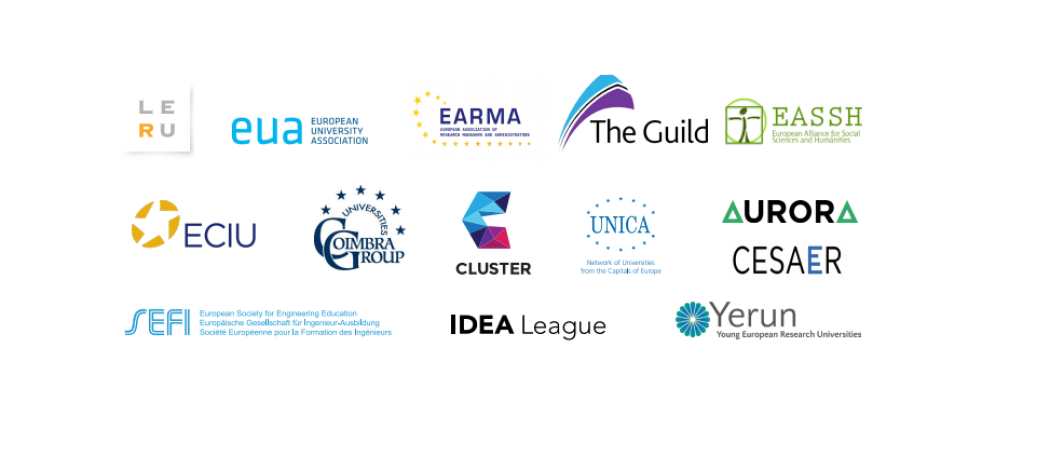Fourteen associations plead for a re-focus on researcher-driven projects in next EU research programme

Some of Europe’s biggest university groups have made a joint plea to member states and the European Parliament to increase spending on science under the EU’s next research programme, Horizon Europe.
In a rare joint statement issued on Friday, the 14 groups, which include the League of European Research Universities, the Guild of European Research-Intensive Universities and the European University Association (EUA), call for an increase in the total Horizon Europe budget, from €94.1 billion to €160 billion, and a re-organising of spending priorities within the programme’s three pillars.
The number of universities involved in drawing up the statement, with the EUA alone representing over 850 institutions, makes these pleas very difficult to ignore and increases the likelihood that the figures in the Commission’s proposal will look different by the end of long negotiations. But the Commission may also argue that the balance between science and innovation is already fair – in fact, expenditure on science is still almost twice as much as on innovation-related initiatives.
Fearing the balance of expenditure is tilted towards innovation initiatives, mainly found in pillar three, at the expense of science in pillar one, the groups want to see the budget shifted towards academic research.
“The underfunding of pillar one, and the overfunding of pillar three, have been a damper on the initial joy,” said Kurt Deketelaere, secretary-general of LERU.
The budget rolled out by the European Commission on June 7 achieved a strange feat of disappointing two core constituents of EU research: universities and industry.
Reaction has been quick and pointed. A big disappointment for researchers is the lower-than-anticipated funding bumps for two popular research-driven programmes in pillar one. The university groups demand more money for the Marie Sklodowska-Curie Actions fellowships for doctoral programmes, postdocs, and staff exchanges, which is earmarked €6.8 billion, up slightly from €6.2 billion in Horizon 2020, and the programme’s main basic science funder, the European Research Council, which draws €16.6 billion – a €3.5-billion boost. “We feel very strongly that the budget for ERC should really double,” Jan Palmowski, secretary-general of the Guild of European research universities, said last week. It was also pointed out that in the Horizon Europe proposal, Marie Curie now represents about 7 per cent of the total budget, compared to 8 per cent under Horizon 2020.
These two programmes in particular have “a proven track record in generating EU added value; contributing to the European research and innovation landscape; and reinforcing European human capital,” the statement says.
A “revision”, the universities say, should also be made in the programme’s main component, ‘Global Challenges and Industrial Competitiveness’, or pillar two, which takes the lion’s share of the overall budget.
Pillar two of Horizon Europe proposes to devote €52.7 billion, to five “clusters” to tackle climate change, boost digital technologies, improve food and health, address other ‘global challenges’ and boost industrial competitiveness.
Universities are concerned that the “inclusive and secure societies” cluster, which is mainly devoted to social sciences and humanities, is slated to receive only €2.8 billion, while “digital and industry” and “climate, energy and mobility” each get €15 billion. A €300 million increase for health has been described elsewhere as “paltry”.
“We welcome the five-cluster approach, but a more balanced budget distribution must capture the fact that they all are the most pressing challenges our societies are facing,” the statement says.
The universities’ disquiet adds to a rising chorus of concern over the merging of industry and societal challenges projects in one section. In the current programme, Horizon 2020, industry has its own separate budget.
“Industry’s short-term interest should not prevail over society’s long-term benefits from Horizon Europe,” the universities’ statement says. “Close-to-market activities should be complemented explicitly with fundamental research.” Corporates are equally unimpressed with this part of the programme.
Meanwhile, the role of universities in the European Innovation Council (EIC), which is earmarked for more than €10 billion for technology commercialisation, “must be amplified and recognised,” the universities say. Universities feel the proposal has left them out in the cold. The EIC will provide finance mainly to help promising young companies scale-up, and there have been questions over whether this is an appropriate use of the research budget.
"If it had not been for the bad budget distribution proposal, our overall evaluation could have been much more positive,” said Deketelaere. “The budget proposal is okay, but must be increased, the programme proposal is okay, but must be improved, and we are ready to help in this in a very constructive way.”
The statement also “positively note[s]” the budget increase for poorer-performing EU countries – which fall under the ‘strengthening the European Research Area’ component of the budget.





 A unique international forum for public research organisations and companies to connect their external engagement with strategic interests around their R&D system.
A unique international forum for public research organisations and companies to connect their external engagement with strategic interests around their R&D system.